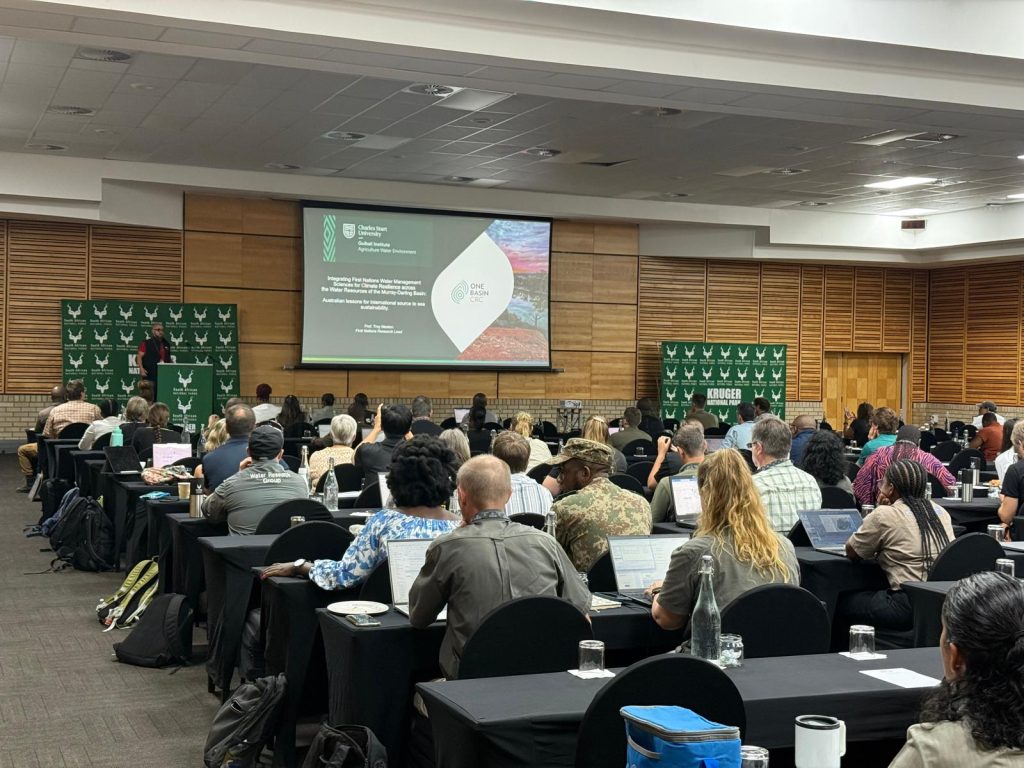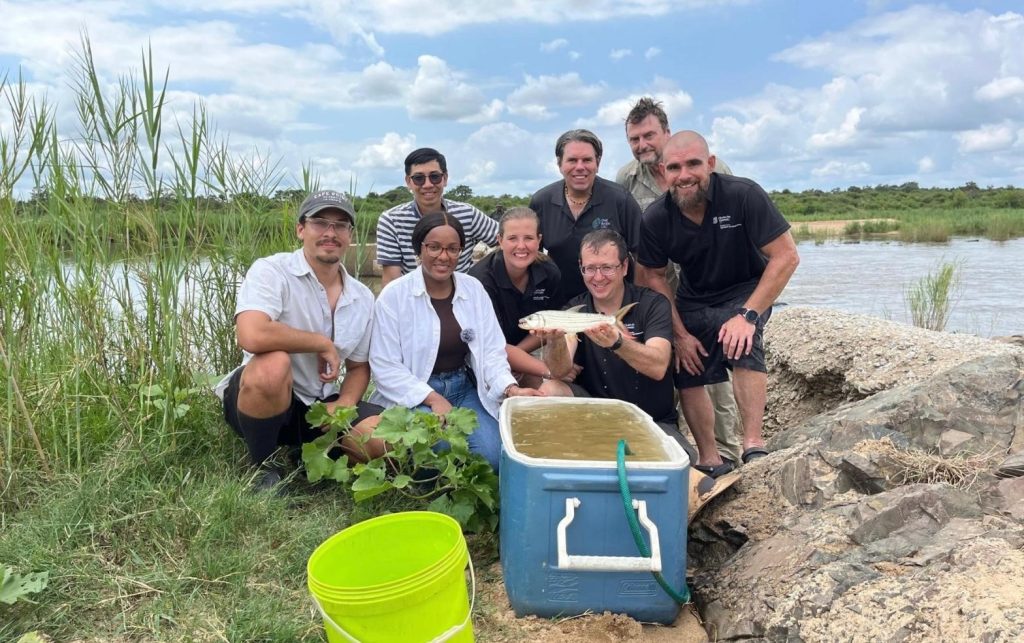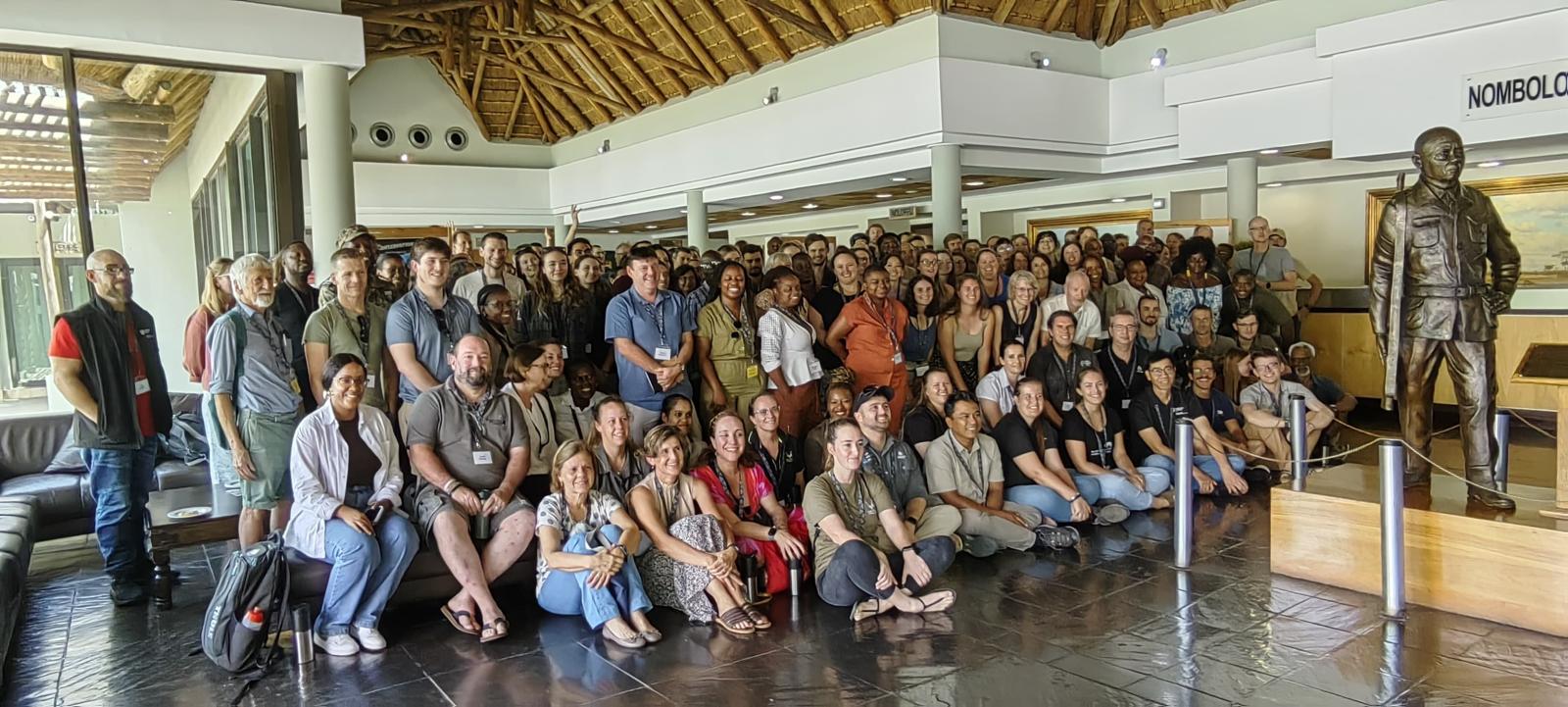International Engagement and Knowledge Exchange
Cultural Training
The First Nations Research Program is extending its reach through international engagement initiatives that enhance the program’s ability to advocate for sustainable river health and intergenerational equity, while establishing the One Basin CRC’s global reputation.
From March 3rd to 6th, 2025, Professor Troy Meston and Geoff Reid represented the One Basin CRC at the 22nd Savanna Science Network Meeting (SSNM) held at Kruger National Park in South Africa. This annual international gathering unites scientists and conservationists focused on savanna ecosystems, with the 2025 theme being ‘Re-imagining conservation: Healthy, sustainable, climate-resilient savannas that benefit people.’ Kruger National Park, a vast and biodiverse reserve, provided an ideal backdrop for discussions on global conservation challenges and solutions.
The One Basin CRC’s participation aimed to foster international collaborations in research, education, and community engagement, aligning with its mission to integrate diverse knowledge systems for sustainable water resource management in the Murray-Darling Basin. During the Source to Sea component of the meeting, chaired by Dr. Dumisani Khosa, Meston and Reid delivered presentations outlining the CRC’s scope, extensive partner network, and its strong emphasis on First Nations leadership in water and land management. They highlighted the CRC’s commitment to blending Indigenous knowledge with Western scientific approaches, a cornerstone of their research philosophy.

A notable aspect of their presentations was the cultural acknowledgment of the lands and custodians, a standard practice in Australian research settings but less common in South Africa. This gesture sparked significant interest among attendees, who posed insightful questions about the significance and role of Acknowledgment of Country in Australian research and governance. This exchange underscored the potential for cross-cultural learning and the value of incorporating Indigenous protocols in environmental discussions.
A key event during the meeting was the two-day launch of Charles Sturt University’s Sustainable African Rivers Initiative (SARI). Led by Dr. Gordon O’Brien and a collaborative team from CSU and the University of Mpumalanga (UMP), SARI is an applied research program dedicated to freshwater conservation and sustainable management in South Africa. Its primary objectives include enhancing river health and biodiversity through expertise in sustainable water resource management, aquatic ecology, fisheries, ecotoxicology, ecological risk assessment, ecosystem services, and social research. SARI operates through collaborations with regional and international scientists, as well as stakeholders involved in transboundary water resource management, including governments and local communities.
SARI is an initiative of CSU’s Gulbali Institute and partners with North-West University, UMP, and the Oppenheimer Generations Research and Conservation Foundation, led by Dr. Duncan MacFayden. The Oppenheimer Foundation supports crucial research and conservation efforts across Africa and Asia, focusing on promoting ecosystem resilience and sustainable human-nature interactions. SARI’s headquarters are located at Charles Sturt University in Albury, Australia, with a vital research base and laboratory situated in Mbombela, South Africa, in close proximity to Kruger National Park. The initiative is supported by a dedicated team of scientists, postgraduate students, and technical staff, equipped with the necessary research facilities to conduct impactful applied research across the region.
The SARI launch commenced with a presentation by Dr. O’Brien at the Savanna Science Network Meeting. Following this, the SARI team, accompanied by South African government water managers and leading scientists from SANParks, embarked on a field trip through Kruger National Park to a fishway monitoring site on the Lower Sabie River. Over two intensive days, Meston and Reid actively participated in tiger fish tagging and monitoring, water flow assessments, and evaluations of fishway functionality.

The collaborative efforts between One Basin CRC, Charles Sturt University, and the University of Mpumalanga, as highlighted at the Savanna Science Network Meeting and the SARI launch, represent significant steps towards fostering international research partnerships and promoting sustainable resource management through the integration of diverse knowledge systems.
